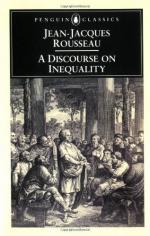|
This section contains 531 words (approx. 2 pages at 400 words per page) |

|
Chapter 2, A Discourse on the Moral Effects of the Arts and Sciences, Part II Summary and Analysis
Rousseau begins the second part by arguing that many civilizations have believed that science arose from an enemy of humanity, or superstition. Pride created ethics, geometry of greed, and physics from idleness. And the evil beginning is reproduced in their objects. Arts require luxury; the law would be pointless without injustice. History would be empty if there were no tyrants, wars, etc.
The effects of the sciences are dangerous; they generate idleness and make it possible not to produce good in the world. The more we know, the more time for mischief we have. Our labors seem to matter little, but Rousseau thinks true idleness would return us to the original state of society. Wasting...
|
This section contains 531 words (approx. 2 pages at 400 words per page) |

|




